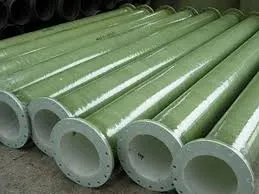
-
 Afrikaans
Afrikaans -
 Albanian
Albanian -
 Amharic
Amharic -
 Arabic
Arabic -
 Armenian
Armenian -
 Azerbaijani
Azerbaijani -
 Basque
Basque -
 Belarusian
Belarusian -
 Bengali
Bengali -
 Bosnian
Bosnian -
 Bulgarian
Bulgarian -
 Catalan
Catalan -
 Cebuano
Cebuano -
 China
China -
 China (Taiwan)
China (Taiwan) -
 Corsican
Corsican -
 Croatian
Croatian -
 Czech
Czech -
 Danish
Danish -
 Dutch
Dutch -
 English
English -
 Esperanto
Esperanto -
 Estonian
Estonian -
 Finnish
Finnish -
 French
French -
 Frisian
Frisian -
 Galician
Galician -
 Georgian
Georgian -
 German
German -
 Greek
Greek -
 Gujarati
Gujarati -
 Haitian Creole
Haitian Creole -
 hausa
hausa -
 hawaiian
hawaiian -
 Hebrew
Hebrew -
 Hindi
Hindi -
 Miao
Miao -
 Hungarian
Hungarian -
 Icelandic
Icelandic -
 igbo
igbo -
 Indonesian
Indonesian -
 irish
irish -
 Italian
Italian -
 Japanese
Japanese -
 Javanese
Javanese -
 Kannada
Kannada -
 kazakh
kazakh -
 Khmer
Khmer -
 Rwandese
Rwandese -
 Korean
Korean -
 Kurdish
Kurdish -
 Kyrgyz
Kyrgyz -
 Lao
Lao -
 Latin
Latin -
 Latvian
Latvian -
 Lithuanian
Lithuanian -
 Luxembourgish
Luxembourgish -
 Macedonian
Macedonian -
 Malgashi
Malgashi -
 Malay
Malay -
 Malayalam
Malayalam -
 Maltese
Maltese -
 Maori
Maori -
 Marathi
Marathi -
 Mongolian
Mongolian -
 Myanmar
Myanmar -
 Nepali
Nepali -
 Norwegian
Norwegian -
 Norwegian
Norwegian -
 Occitan
Occitan -
 Pashto
Pashto -
 Persian
Persian -
 Polish
Polish -
 Portuguese
Portuguese -
 Punjabi
Punjabi -
 Romanian
Romanian -
 Russian
Russian -
 Samoan
Samoan -
 Scottish Gaelic
Scottish Gaelic -
 Serbian
Serbian -
 Sesotho
Sesotho -
 Shona
Shona -
 Sindhi
Sindhi -
 Sinhala
Sinhala -
 Slovak
Slovak -
 Slovenian
Slovenian -
 Somali
Somali -
 Spanish
Spanish -
 Sundanese
Sundanese -
 Swahili
Swahili -
 Swedish
Swedish -
 Tagalog
Tagalog -
 Tajik
Tajik -
 Tamil
Tamil -
 Tatar
Tatar -
 Telugu
Telugu -
 Thai
Thai -
 Turkish
Turkish -
 Turkmen
Turkmen -
 Ukrainian
Ukrainian -
 Urdu
Urdu -
 Uighur
Uighur -
 Uzbek
Uzbek -
 Vietnamese
Vietnamese -
 Welsh
Welsh -
 Bantu
Bantu -
 Yiddish
Yiddish -
 Yoruba
Yoruba -
 Zulu
Zulu
frp chemical storage tanks
FRP Chemical Storage Tanks An Essential Component for Safe and Efficient Industrial Operations
In the modern industrial landscape, the storage of chemicals is a critical component that requires meticulous attention to safety, reliability, and efficiency. Among the various solutions available, Fiber-Reinforced Plastic (FRP) chemical storage tanks have emerged as a popular choice, thanks to their unique properties and advantages.
FRP tanks are made from a composite material that consists of a polymer matrix reinforced with fiber. This combination provides superior mechanical strength, corrosion resistance, and durability, making them ideal for storing a wide range of chemicals, including acids, bases, and solvents. The significance of using FRP for chemical storage cannot be overstated, particularly in industries such as pharmaceuticals, agriculture, and petrochemicals.
Advantages of FRP Chemical Storage Tanks
1. Corrosion Resistance One of the primary benefits of FRP tanks is their exceptional resistance to corrosion. Unlike traditional metal tanks that can rust or degrade when exposed to harsh chemicals, FRP tanks maintain their integrity over time. This characteristic is paramount in preventing leaks and spills, which can lead to environmental contamination and safety hazards.
2. Lightweight and Durable FRP tanks are significantly lighter than their metal counterparts. This advantage makes them easier to transport and install, reducing overall project costs. Despite their lightweight nature, FRP tanks provide excellent structural integrity and can withstand extreme environmental conditions, including high temperatures and pressure variations.
3. Customizability The manufacturing process of FRP allows for a high degree of customization. Tanks can be designed to meet specific dimensions, thicknesses, and shapes as required by the application. This flexibility ensures that industries can find tailored solutions that fit their unique storage needs.
frp chemical storage tanks

4. Cost-Effectiveness Although the initial investment in FRP tanks may be higher compared to other materials, their long-term benefits often outweigh the costs. The durability and low maintenance needs of FRP tanks reduce the overall lifecycle costs. Moreover, they are less likely to require replacement or extensive repairs, leading to significant savings over time.
5. Environmental Compliance As regulatory standards for chemical storage become more stringent, FRP tanks provide a viable solution for compliance. Their corrosion resistance and leak-proof nature help industries meet environmental protection standards, minimizing the risk of hazardous material spills that can have grave consequences for ecosystems and communities.
Applications of FRP Chemical Storage Tanks
FRP chemical storage tanks find applications across various industries. In the agricultural sector, they are used for storing fertilizers and pesticides. In the pharmaceutical industry, they are employed to store sensitive chemicals and medicines that require strict environmental controls. The petrochemical sector also utilizes FRP tanks for storing various harmful chemicals safely.
Conclusion
In conclusion, FRP chemical storage tanks represent a robust and efficient solution for industries that handle corrosive and hazardous materials. Their unique properties—such as corrosion resistance, lightweight design, customization options, and cost-effectiveness—position them as an essential component in ensuring safe and reliable chemical storage. As industries continue to prioritize safety and environmental compliance, FRP tanks will play a pivotal role in shaping sustainable practices in chemical management. With the growing awareness of the importance of proper chemical storage, FRP tanks are poised to remain at the forefront of industrial storage solutions for years to come.
Latest news
-
Exploring the Benefits of Top Hammer Drifter Rods for Enhanced Drilling PerformanceNewsJun.10,2025
-
High-Precision Fiberglass Winding Machine for GRP/FRP Pipe Production – Reliable & Efficient SolutionsNewsJun.10,2025
-
FRP Pipes & Fittings for Shipbuilding - Corrosion-Resistant & LightweightNewsJun.09,2025
-
Premium FRP Flooring Solutions Durable & Slip-ResistantNewsJun.09,2025
-
Premium Fiberglass Rectangular Tanks Durable & Lightweight SolutionNewsJun.09,2025
-
Tapered Drill String Design Guide Durable Performance & UsesNewsJun.09,2025









